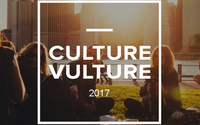Mindshare Finds 'American Dream' Changing
- by Larissa Faw , January 30, 2017

Mindshare
has released a new consumer trends report, part of its Culture Vulture series, highlighting trends that will impact the advertising business this year. This year will see the emergence of Boomer
power, the embrace of boredom, and a growing realization that the so-called American Dream has different definitions, among others.
"The report is a reminder on how quickly the world and culture changes," says Alexis Fragale, director, consumer insights, Mindshare North America. "There are pockets of growth opportunities that advertisers may be missing, and may need to address differently than before. And there are a lot of myths out there. Myths about how people are feeling in America. About the types of content people want. About consumer media behavior. “
Advertising has always been obsessed with youth and the media remains smitten with Millennials--they receive 3.5 times more coverage than Baby Boomers.
advertisement
advertisement
But, as Mindshare points out, it’s the Boomers who control 70% of the disposable income in this country. Now, more companies are starting to understand that and are beginning to focus more on needs of this older audience. For instance there’s the Freebird Club that serves as an AirBnB for empty nesters.
"The tide is turning—older is becoming cooler as Boomers take on a 'Middle Aged Millennial' mindset, driving growth across e-commerce, social media, the gig economy, and more,” per the study.
Meanwhile, there’s a lot of social change happening in the U.S. and many aren’t thrilled about it. According to the study the majority of Americans feel that the country’s going in the wrong direction: only 29% of Americans are satisfied with the U.S.’s direction. People’s fears of a terrorist attack are at the highest since 9/11, and they have mixed views about globalization.
Essentially consumers are unhappy about
what’s going on in The World. However, on a personal level – what’s going on in "My World" –the sentiment is a lot more positive with 85% of adults indicating that
they’re satisfied with their personal life. "The disparities between 'The World' and 'My World' are extraordinary," says Fragale. "And that makes it tough for brands to know how to talk to
America, and which lenses to view the country through."
As consumers become less trusting of institutions and mass media, Mindshare's My World/The World recommends that brands seek creative,
humorous ways to cut the tension and play in both worlds.
Similarly, people are increasingly expressing more anxiety than happiness. While stress levels are declining, people are seeking new tactics and solutions to provide them with purpose and mindfulness, says Mindshare.
Although 45% of Americans try to unplug from technology once a week the agency advises brands to help people break free from their hectic lives, citing apps like Headspace and things like guided VR meditation.
Virgin America helped to jumpstart a trend when the airline created a six-hour long video in 2014 depicting an incredibly boring cross-country flight aboard Blah Airlines.
Taking a page from Virgin America, brands should explore using boring content to be different and grab consumers’ attention. Mindshare points to some examples such as the viral six-hour Periscope stream of a puddle in England or the popular Life of Norman subreddit that chronicles a man who watches re-reruns of CSI.
We’re not as interesting as we think we are, the report concludes. Most lives are uneventful, and these days you’re just as likely to see people post on social about bingeing on Netflix as they are about going to the latest clubs.
Casual Friday dress has become the new everyday uniform. Under the Informal Normal, people are playing it casual, at work and with friends beyond just dress code. Millennials are leading the way with two-thirds cursing at work and half becoming Facebook friends with their boss. Teens are shifting from glammed-up, pretentious selfies to fun and quirky filters, changing the overall aesthetic of social media, says Mindshare.
And as more and more American traditions become relaxed, individuality is bubbling forth and brands are stepping up options for personalization and customization.
The U.S. now has two definitions of the American Dream. For many - largely first generation immigrants - the traditional one remains going to college and owning a home. However, for others, success has a new meaning—less about the size of the bank account or brands you wear. It’s about time for self-development and the pursuit of personal passions. And as people seek out a different type of fulfillment, companies like Amazon and Netflix are testing out 30-hour work weeks and flexible parental leave under the new definition of 21st Century Success.
Mindshare uses a proprietary research approach for Culture Vulture, which includes a survey of 2,000 North American consumers as well as third party resources, such as government data and behavioral research. In addition, the report examines demographic shifts, media consumption, sociological insights, as well as the implications for brands. More on the latest study can be found here.


